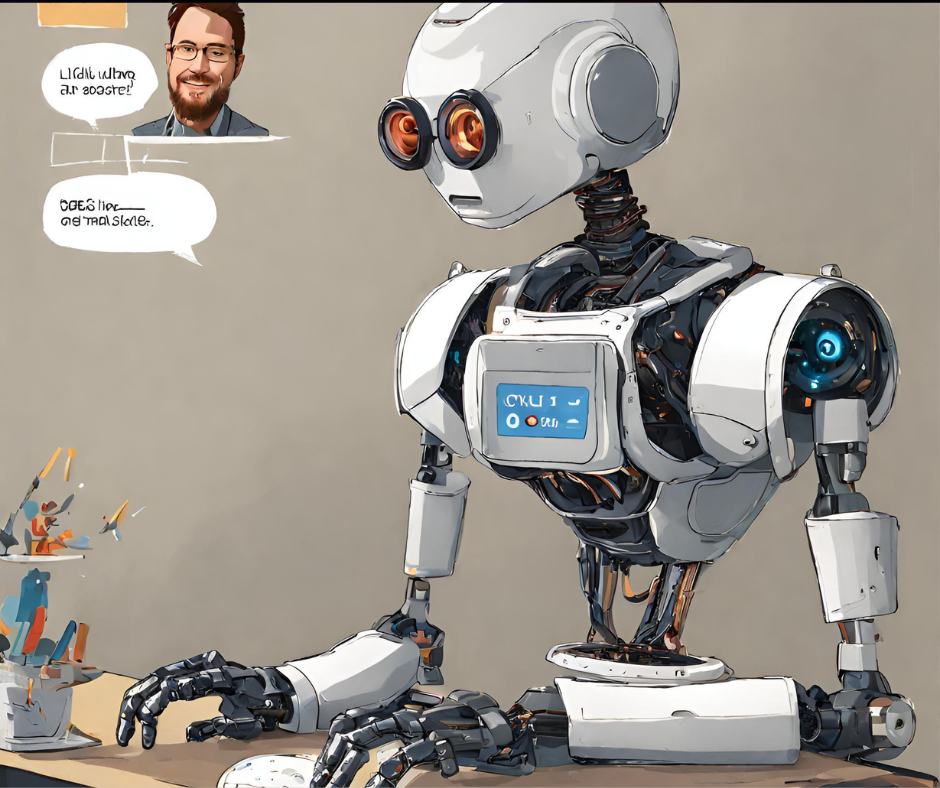In a recent episode of ‘Shark Tank,’ the spotlight shone on an innovative AI startup aiming to reshape public perception of artificial intelligence bots. This endeavour attracted the attention of none other than the billionaire titans, Mark Cuban and Michael Rubin, who engaged in a ‘battle of the billionaires.‘ In this article, we delve into the intriguing story of Maurice Bachelor and his Los Angeles-based company, Bot-It. Their journey on ‘Shark Tank’ culminated in a remarkable $300,000 investment offer from Cuban and Rubin. Let’s explore the details of this captivating pitch and the potential impact it could have on the world of AI and technology.
Key Points from Bot-It’s ‘Shark Tank’ Pitch:
1
Bot-It, an AI-based website and mobile app, aims to automate various online tasks, including appointment scheduling and restaurant reservations.
2
The ‘pro’ subscription offers users an advantage in securing hard-to-get items like sneakers and concert tickets.
3
Concerns about the impact of bots on consumer experiences prompted the founders to create Bot-It as a solution
4
Michael Rubin, CEO of Fanatics, expressed concerns about bots buying up products for resale at inflated prices.
5
Mark Cuban offered $150,000 for a 20% equity stake, impressed by Bot-It’s AI technology.
6
Michael Rubin countered with a $50,000 offer for a 15% equity stake, valuing the company higher than Cuban.
7
A joint venture emerged when Bachelor and Griffith sought to combine the expertise of both investors.
8
A final joint offer of $300,000 for a 30% equity stake was accepted, marking a transformative moment for Bot-It.
Changing Perceptions
Maurice Bachelor, with his vision of transforming how people perceive AI bots, set the stage for an exciting confrontation on ‘Shark Tank.‘ Teaming up with Joel Griffith, his co-founder and head of growth, they introduced Bot-It, a web-based platform and mobile app powered by artificial intelligence. The core purpose of Bot-It is to simplify and streamline various online tasks, such as scheduling appointments and making restaurant reservations, through AI automation.
However, what sets Bot-It apart is its ‘pro’ subscription, designed to provide users with a competitive edge in the realm of sneaker releases and securing coveted concert tickets. Bachelor, Bot-It’s lead software engineer, explained how this feature enables users to skip the queue, enhancing the appeal of the service. This dynamic makes Bot-It a somewhat contentious venture, as the use of bots has, in some instances, marred the shopping experiences of consumers globally, particularly within specific industries and live events.
A Billionaire Clash
The significance of the Bot-It pitch became apparent when Michael Rubin, the CEO of Fanatics and a guest judge on ‘Shark Tank,’ voiced his concerns about the pervasive issue of bots. He emphasized the staggering magnitude of these automated shoppers attempting to purchase billions of dollars worth of products from retailers. This digital arms race raises critical questions about fairness and ethics, especially when it comes to products highly sought after by consumers.
Kevin O’Leary, another ‘Shark Tank’ judge, chimed in, pondering the ethical implications of supporting bot usage. Rubin’s concern was genuine; it begged the question of whether consumers were inadvertently supporting unfair practices. Bachelor and Griffith aimed to address these concerns by presenting their technology as a solution that enables real individuals to stand against faceless bot armies. They aimed to reshape the negative perception of bots and promote their potential for good.
Rubin resonated with this argument, highlighting how most bots on Fanatics’ platform were part of large-scale efforts to purchase new products for potential resale at significantly higher prices on third-party platforms. Empowering consumers with bots could level the playing field, allowing regular buyers to access sought-after items at reasonable prices. Rubin’s mindset was clear: he preferred to disrupt his own industry rather than let external forces disrupt it for him.
Mark Cuban’s Offer
Mark Cuban, known for his tech-savvy investments and entrepreneurial spirit, was the first Shark to extend an offer. Cuban saw the potential in Bot-It’s artificial intelligence platform, which could complete tasks at remarkable speeds. He recognized that with the proliferation of AI technology, people were becoming increasingly interested in tasks that AI could assist with, provided the right user interface was in place. Cuban offered $150,000 in exchange for a 20% equity stake in Bot-It.
Michael Rubin’s Counteroffer
Michael Rubin, a powerhouse in the world of sports retail and e-commerce, wasn’t willing to let Cuban have Bot-It all to himself. He swiftly entered the arena, addressing Cuban with a simple question: “Would you have me as your partner?” Cuban, however, was quick to assert his interest in Bot-It, signalling that he wanted sole ownership. Rubin, undeterred, put forward his counteroffer – $50,000 for a 15% equity stake in the company, valuing it at a higher level than Cuban’s initial offer. This turn of events set the stage for a dramatic showdown, leading Kevin O’Leary to exclaim, “It’s a Shark fight!” The ‘battle of the billionaires’ had begun.
A Joint Venture
Bachelor and Griffith found themselves caught in the middle, facing a challenging decision. Sensing the potential of Bot-It and the expertise that both Cuban and Rubin could bring to the table, they made a plea for a joint deal. The billionaires, recognizing the synergy of their partnership, reached a consensus. In a final move, they offered $300,000 for a 30% equity stake in Bot-It. Although there was initial hesitation regarding the equity percentage, Bachelor and Griffith eventually accepted the offer, marking a pivotal moment in the life of Bot-It.
The Future of Bot-It
As the deal was sealed on ‘Shark Tank,’ an elated Bachelor expressed, “This is the most important day of the Bot-It life.” Having both Mark Cuban and Michael Rubin as their allies, they were poised to take their venture to new heights. This successful pitch not only secured vital funding but also validated the potential of their AI-based platform to reshape industries and consumer perceptions of bots.
In the ever-evolving landscape of technology and AI, Bot-It’s journey on ‘Shark Tank’ is emblematic of the ongoing battle between innovation and ethics. With the backing of two billionaire powerhouses, Bot-It stands as a symbol of positive change and empowerment for consumers. It serves as a reminder that AI, when harnessed responsibly, can be a force for good, leveling the playing field and revolutionizing the way we interact with technology.
Conclusion
The ‘Shark Tank’ pitch of Bot-It, an AI startup aiming to reshape perceptions of bots, showcased the clash of two billionaire titans, Mark Cuban and Michael Rubin. Their joint investment of $300,000 marked a significant milestone in Bot-It’s journey and emphasized the potential of AI to revolutionize industries and consumer experiences. The episode serves as a testament to the power of responsible innovation and the positive impact it can have in the realm of technology and entrepreneurship.
Related Content

Pranjali Awasthi’s Delv AI: Revolutionizing Data Extraction with AI Innovation
Pranjali Awasthi, a remarkable young prodigy at the age of…

Spotify’s AI-infused playlists Are the Future of Musical Exploration
In our digital epoch, the realm of music streaming persistently…

From Sci-Fi Nightmare to Photorealistic Pleasure: The AI Porn Revolution
In recent years, the rapid increase of generative AI technology…
